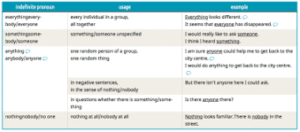When it comes to writing or speaking with flair, using the same expressions over and over can make your message feel repetitive or dull. One such phrase is “not only.” While it’s useful, there are plenty of alternatives that can spice up your language, add variety to your communication, and enhance clarity. Whether you’re crafting blog posts, essays, or business emails, having a broader vocabulary will elevate your writing game.
In this article, we’ll explore 30 other ways to say “not only,” complete with examples for each. Let’s dive in and refresh your phrasing toolkit. “Not Only” (With Examples)

Why Look for Alternatives to “Not Only”?
“Not only… but also” is a classic correlative conjunction. While effective, overusing it can:
- Make your writing sound mechanical
- Reduce emphasis due to repetition
- Limit your creative expression
Expanding your options keeps your writing fresh and engaging.
Common Synonyms and Phrases to Replace “Not Only”
Here are 30 engaging alternatives to “not only,” organized into thematic categories for easier reference.
1. Formal and Professional Alternatives
These are great for business reports, academic essays, or professional emails.
- Moreover
- Moreover, she developed a comprehensive marketing plan.
- In addition to that
- In addition to that, he improved the system’s efficiency.
- Furthermore
- Furthermore, the results were statistically significant.
- Besides
- Besides increasing sales, the campaign enhanced brand loyalty.
- As well as
- He is skilled in design as well as programming.
2. Conversational and Everyday Options
Perfect for blogs, conversations, or casual writing.
- Also
- She also managed the social media accounts.
- Too
- He plays guitar, too.
- On top of that
- On top of that, she volunteers on weekends.
- What’s more
- What’s more, the event raised over $10,000.
- And
- And he fixed the issue within minutes.
3. Emphatic Expressions
These emphasize the significance of the additional point.
- Even more importantly
- Even more importantly, they improved customer satisfaction.
- Better yet
- Better yet, they delivered ahead of schedule.
- Not to mention
- Not to mention, she leads the entire team.
- In fact
- The project doubled in value.
- Actually
- The second version worked better.
4. Literary and Creative Phrasing
Ideal for storytelling, speeches, or content writing.
- To top it all off
- To top it all off, the sunset was breathtaking.
- What’s even better
- What’s even better, the sequel exceeded expectations.
- Beyond that
- Beyond that, he received a standing ovation.
- In like manner
- In like manner, she replicated the experiment with success.
- To say nothing of
- To say nothing of his charisma and leadership.
5. Academic and Technical Writing
Use these in research papers or scholarly work.
- Additionally
- Additionally, the data was peer-reviewed.
- Likewise
- Likewise, previous studies confirmed the trend.
- Correspondingly
- Correspondingly, a decline in usage was observed.
- Notably
- Notably, the findings align with earlier theories.
- Subsequently
- Subsequently, results improved over time.
6. Comparative or Persuasive Writing
Use when making arguments or comparisons.
- More importantly
- More importantly, it reduced long-term costs.
- Even more so
- Even more so, it appealed to younger audiences.
- By the same token
- By the same token, the strategy applies to other industries.
- Just as
- Just as impressive was her attention to detail.
- Equally
- Equally, the customer feedback was outstanding.
Tips on Using Alternatives Effectively
Choosing the right substitute depends on context and tone. Keep these tips in mind:
- Know your audience: Use formal options in academic writing and casual ones in personal blogs.
- Don’t overdo it: While variety is good, clarity is better.
- Maintain parallel structure, especially when using correlative phrases.
- Use examples to check flow: Always read your sentence aloud to ensure it sounds natural.
Quick Reference List
Here’s a bullet list to recap:
- Moreover
- In addition to that
- Furthermore
- Besides
- As well as
- Also
- Too
- On top of that
- What’s more
- And
- Even more importantly
- Better yet
- Not to mention
- In fact
- Actually
- To top it all off
- What’s even better
- Beyond that
- In like manner
- To say nothing of
- Additionally
- Likewise
- Correspondingly
- Notably
- Subsequently
- More importantly
- Even more so
- By the same token
- Just as
- Equally
Bookmark this list or share it with fellow writers looking to expand their vocabulary. “Not Only” (With Examples)

Conclusion
Using the same phrases repeatedly can dull your writing and weaken your impact. By replacing “not only” with these dynamic alternatives, you add variety, enhance clarity, and strengthen your overall expression. Whether you’re writing a formal report or a fun blog post, having a rich toolbox of phrases ensures your communication stays engaging and effective.
Want more writing tips like this? Subscribe to our newsletter for weekly updates on grammar, style, and word choice to level up your writing game. 30 Other Ways to Say “Not Only” (With Examples)